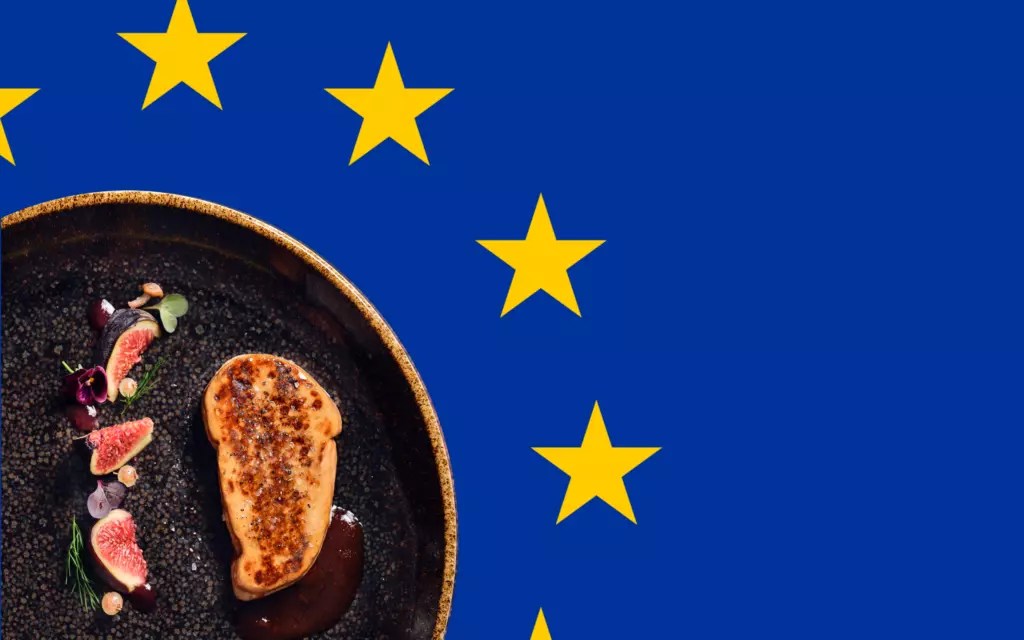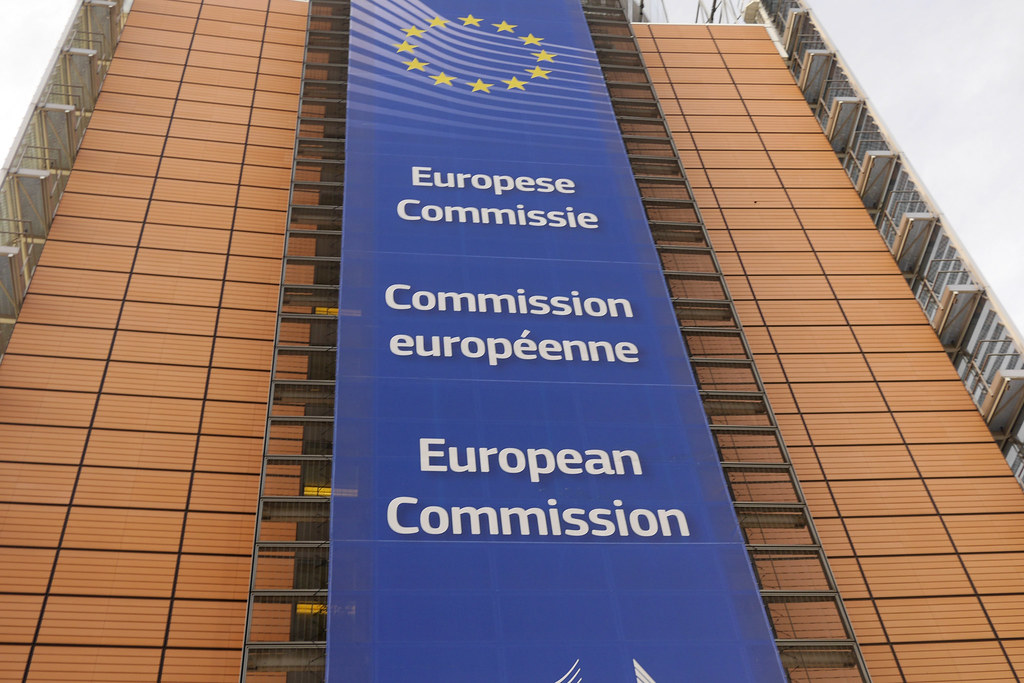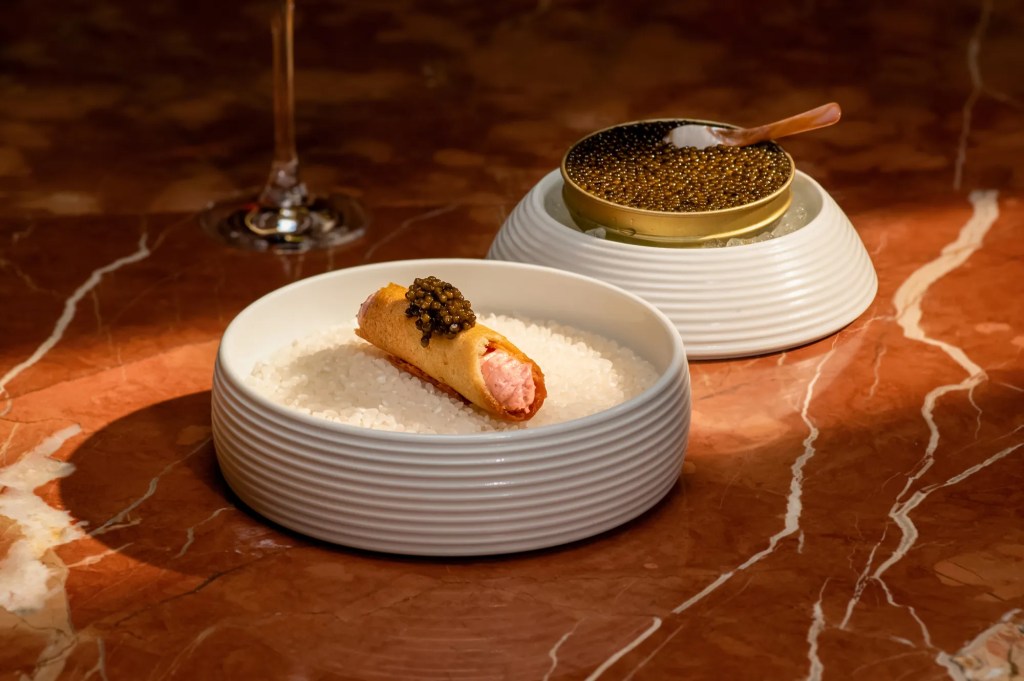French start-up Gourmey submitted an application to EU regulators last week for its cultivated foie gras, marking the first-ever application to sell cultivated meat in the European Union.
Aside from the EU, Gourmey has also submitted applications in Singapore, Switzerland, the UK, and the United States.
Cultivated meat refers to meats such as chicken, pork, and seafood that are made via extracted animal cells in bioreactors rather than through animal agriculture. Final products can be indistinguishable from traditional meat or intentionally different to create new and unique products.
Seth Roberts, Senior Policy Manager at the Good Food Institute (GFI) Europe, said, “It’s fantastic to see the first application to sell cultivated meat in the EU has been submitted. This demonstrates that food innovation can coexist alongside our culinary traditions, providing consumers with foie gras made in a way that could reduce environmental impacts and animal welfare concerns, support investment, and provide future-proof jobs.”
Gourmey CEO Nicolas Morin-Forest said, “We look forward to continuing to work closely with the regulatory authorities to ensure full compliance with safety requirements throughout these procedures. We are confident that our products will meet these highly demanding standards, so that everyone who wants to can enjoy new gourmet experiences all around the world.”
Morin-Forest added that Gourmey would start with haute-cuisine as a catalyst for future product launches, the cultivated foie gras having gained notable commercial traction among chefs that wish to continue serving the delicacy.

The EU regulatory process for cultivated meat
According to EU regulations, before a cultivated meat product can be sold in Europe, it needs to be approved by the European Commission. The market authorisation of cultivated meat is overseen by the Novel Foods Regulation, whose authorisation procedure consists of two stages – risk assessment and risk management.
Once the European Commission approves a cultivated meat product, it can then be sold across all 27 EU countries. The approval process will include a thorough and evidence-based assessment of the safety and nutritional value of cultivated meat and is estimated to take at least 18 months.
During risk management and the public consultation phase of the process, it also enables the consideration of the potential social and economic impacts of the food in question.
The European Commission and member states have a role in the approvals process alongside scientific experts at the European Food Safety Authority to ensure authorisation decisions are representative and retain the buy-in of all stakeholders.
Cultivated meat faces contention, misinformation across Europe

Gourmey’s submission to the EU comes amid a politically polarised time for cultivated meat across the continent, including the company’s home country of France.
Late last year, France became the second European country to attempt to put forward legislation banning the commercialisation of cultivated meat, following similar measures by Italy. The parliamentary group behind France’s proposed ban expressed opposition to cultivated meat as a threat to France’s traditional culinary culture, a stance supported by the country’s meat lobby.
The European Commission, however, indicated that Italy had breached EU law when it passed a ban on all sales and marketing of cultivated meat products last November, saying the country bypassed EU procedure.
In February, France joined Italy and Austria in submitting a note containing misinformation on the ethical and environmental qualities of cultivated meat products during a meeting of EU Agriculture Ministers. The note received support from several member states while being challenged by some countries such as The Netherlands and Denmark.
Despite attempts by legislators in various European countries to restrict the development and sale of cultivated meat, surveys have shown public opinion towards the technology to be far more favourable.
A survey conducted by YouGov and commissioned by GFI Europe that interviewed more than 16,000 people across 15 European countries found that more than half of respondents in 13 countries were in favour of cultivated meat being approved for sale if food regulators find it to be safe and nutritious.
A majority of respondents agreed with this approach in countries seeking anti-cultivated meat legislation, such as Italy and Hungary, and nearly half of respondents in France shared the same viewpoint.
Thus far, cultivated meat products have been approved for sale in the United States, Singapore, and Israel, with Australia expected to authorise its first cultivated meat products within 2024.

Peer-reviewed research suggests cultivated meat could cause up to 92% less greenhouse gas emissions, up to 94% less air pollution, and use up to 66% less water than conventional beef.
What’s more, GFI Europe posits that because it requires up to 90% less land, cultivated meat could complement sustainable agriculture by providing space for more nature-friendly approaches while boosting Europe’s food security by reducing reliance on crops grown overseas to feed animals.
GFI also emphasised that cultivated meat can be made without antibiotics, helping to reduce the risk of antimicrobial resistance.
To stay up-to-date on the latest industry headlines, sign up to Future Alternative’s enewsletter.
Posted on:


